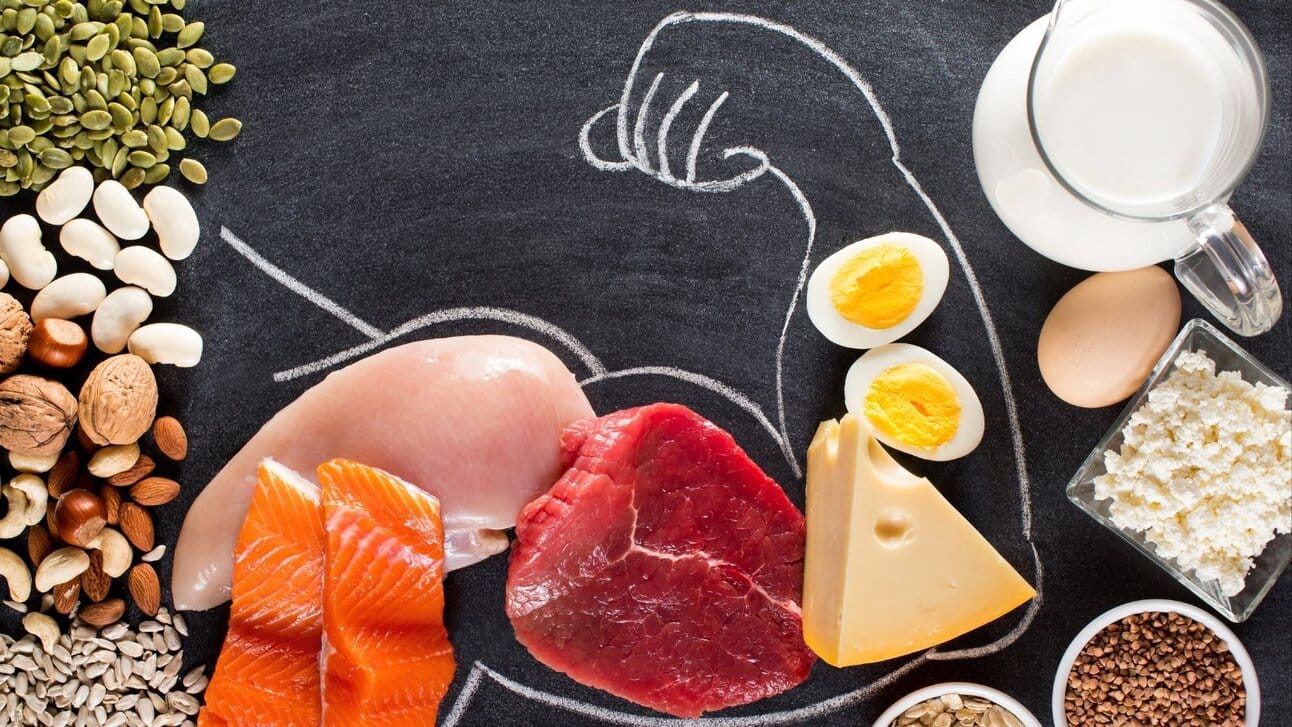- Mansafa's Newsletter
- Posts
- Think you know protein?
Think you know protein?
Most people get it wrong.
Protein is a fundamental requirement of everyone.
But how much do you need?

Starting with the basics:
Imagine your muscles to be a huge wall made of small bricks.
These small bricks are amino acids which make up the muscle tissue.
There are 20 different kinds Amino acids.
Some are essential and some are non essential.
Essential ones are that we absolutely need to get from our diet as our body can not make it.
Non essential ones can be produced by our body. (Not necessarily to be included in diet.)
These protein structures are vital for pretty much everything:
- build and repair tissues
- hormones
- enzymes
- immune system
- transport oxygen
Another concept is complete and incomplete protein:
Complete protein : contains all the essential 9 Amino acids.
Meat, eggs, dairy.
Incomplete: Do not contain all the essential Amino acids
most plant foods like beans, grains etc.
How much protein do you need in a day?
As the general guidelines say, for most adults 0.8g/kg body weight is the RDA.
But this is only the minimum requirement to prevent deficiencies and prevent muscle loss under normal conditions.
- Individuals engaging in strength training and aiming for hypertrophy/strength: 1.6-2.2g/kg body weight.
- Older individuals (Generally 60+): 1.0-1.6g/kg body weight.
- Pregnant women: -1.1-1.3g/kg body weight.
- Lactating women: 1.3-1.5g/kg body weight.
Athletes
👉 Strength/Power Athletes (Powerlifters, Olympic Lifters, Sprinters, Throwers, Football Players): - 1.6 to 2.2g/kg body weight.
👉 Endurance Athletes (Runners, Cyclists, Swimmers, Triathletes): -
1.2 to 1.7 grams per kilogram of body weight (g/kg/BW) per day.
Protein sources
Breakfast: eggs, Greek yogurt, cottage cheese, protein powder in a smoothie
Lunch and dinner: lean protein source (chicken, turkey, fish, beef, tofu, tempeh, lentils, beans
Snack: Handful of nuts, a hard-boiled egg, cheese stick, edamame, protein
Myth: Protein is only for bodybuilders and athletes looking for bulk up.
- Protein is fundamental macronutrient for everyone required for daily functioning irrespective of activity level.
Definitely the amount can differ as discussed above.
- Builds and repairs muscle and tissue
- Crucial for enzymes and hormones
- Immunity
- Most satiating macronutrients
Myth: High protein diet damage kidney and other organs.
For normal healthy individuals who consume higher protein do not cause kidney damage.
For individuals with pre existing kidney disease intake of more protein can exacerbate the condition.
Myth: Men require higher protein intake compared to women.
Protein intake depends on your body weight, activity levels and goals, not gender.
👉 The power of consistency:
Try to spread your protein intake throughout the day.
Instead of consuming all the protein in one meal try to distribute in all meals.
Consuming 20-40g of protein in each meals activates Muscle Protein Synthesis, by triggering ot multiple times you create anabolic environment for better muscle maintenance, growth and recovery.
👉 Proteins role in satiety:
- It keeps you fuller for longer
- Regulates hunger hormones
- Reduces cravings
Incredible tool for weight management and calorie deficit.
👉 Protein is non negotiable for strength training.
Strength training creates micro tears in your muscle and this gives a signal gor hypertrophy.
Protein provides the building block, amino acids, necessary to repair the damage.
If your protein intake is inadequate, its like building a wall without enough bricks.
This is true for athletes as well as general population.
- Maintains muscle mass.
- Improves bone density.
- Enhance mobility and functional independence.
It’s free, and you can unsubscribe anytime—no hard feelings.
Reply